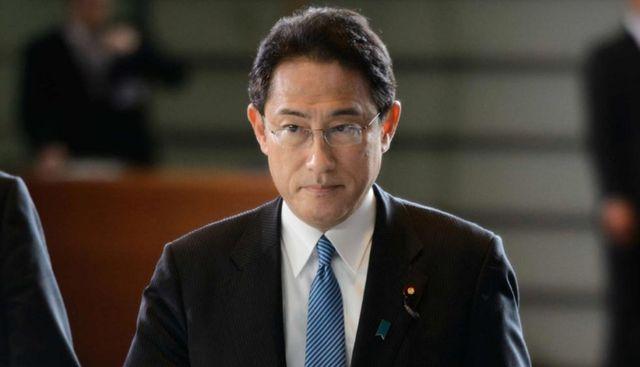The Four Northern Islands are Russia's territory and one of russia's achievements in World War II, and Russia's sovereignty over the Four Northern Islands is undisputed at any level. However, Japan's new prime minister decided to take the four northern islands and openly claimed that they were within Japan's sovereignty.
Judging from Kishida Fumio's attitude, a "right turn" in Japanese politics is inevitable, but Japan may not be able to gain advantages in the confrontation with Russia, and the role played by the United States in this incident is also worth pondering.

Kishida Fumio provoked Russia
The issue of the four northern islands is in part a legacy of history, and Kishida is not the first Japanese prime minister to try to solve it. However, for a long time, neither Japan nor Russia has made effective progress on this issue. During Abe's tenure, the dispute between Japan and Russia over the four northern islands eased somewhat.
Because at that time, Abe and the Russian government reached a certain degree of consensus. However, Kishida's approach broke the tranquility created by Abe and filled the gap between Japan and Russia with a smell of gunpowder. Without any foreshadowing, he forcefully declared Japan's sovereignty over the four northern islands.
Under the influence of Kishida Fumio, some Japanese media and the masses began to clamor, and even made remarks about seizing the four northern islands by force. Even the United States will be cautious in the face of Russia, and today, Japan's approach is indeed unexpected by many people, but this situation is actually traceable.
Why Kishida Fumio is so tough
Kishida's actions are caused by a combination of external and internal causes. External factors refer to the agitation of the United States behind it. Japan is originally the bridgehead of the United States in the Asia-Pacific region, and it is a pawn used by the United States to contain China and Russia, in other words, confrontation with Russia is itself the responsibility and obligation that the United States "entrusts" to Japan.
Coupled with the fact that the United States is gathering allies against China and Russia, Japan naturally has to take the initiative to play a role. The confrontation between Japan and Russia is only a derivative of the confrontation between the United States and Russia. The number of internal factors that led to this happening is relatively large: First, Japan did not reflect on its mistakes in World War II, and it was fundamentally unwilling to accept the results of World War II.
Second, Kishida Himself needs to take a tough stance to cater to Japanese society and Japanese politics, which is constantly "turning to the right." It can be seen from the frequent "worship of ghosts" behavior of Japanese government officials in recent years that right-wing politicians in Japanese politics have become the overwhelming majority of the politician group, and the right-wing elements of the Japanese people are gradually increasing.
And Kishida Fumio has just taken office, and he urgently needs to consolidate his position and support, and tough words and deeds can win him more political capital. Finally, Kishida's approach was essentially a preparation for Japan's military normalization. After all, Japan wants to expand its military, and territorial disputes are a good reason.
In summary, Kishida's behavior is the result of a combination of factors, and the United States has played an important role in it. However, Japan should face up to the balance of its own power with Russia, once the two countries really clash, it is difficult for Japan to get benefits from Russia, and the joint voyage between China and Russia is a warning to Japan.
Japan should be more aware that doing things for the United States will not allow Japan to get better opportunities for development, but will only make Japan a pawn and scapegoat for the United States.
(Disclaimer: The content of this article is an original work, the picture source network, if there is infringement, please contact the notification, some of the news reference sources: National Defense Times, Hubei Radio and Television, Zhonghong Network)